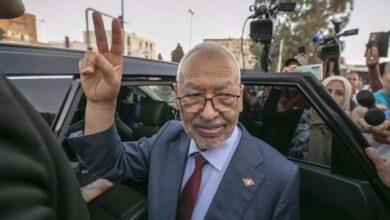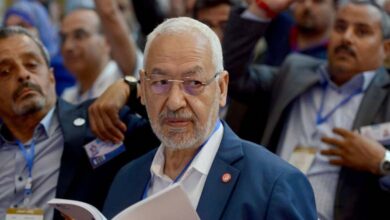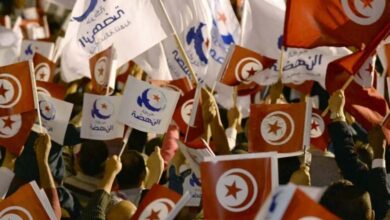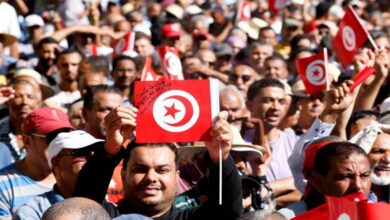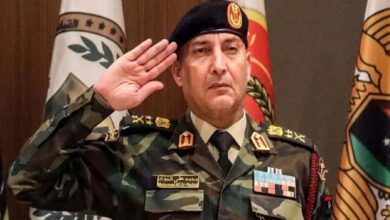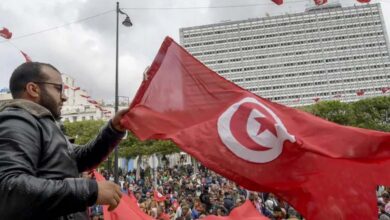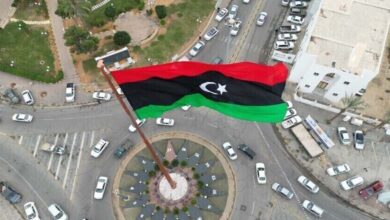Al-Gharyani Incites Armed Resistance against the UN Mission in Libya
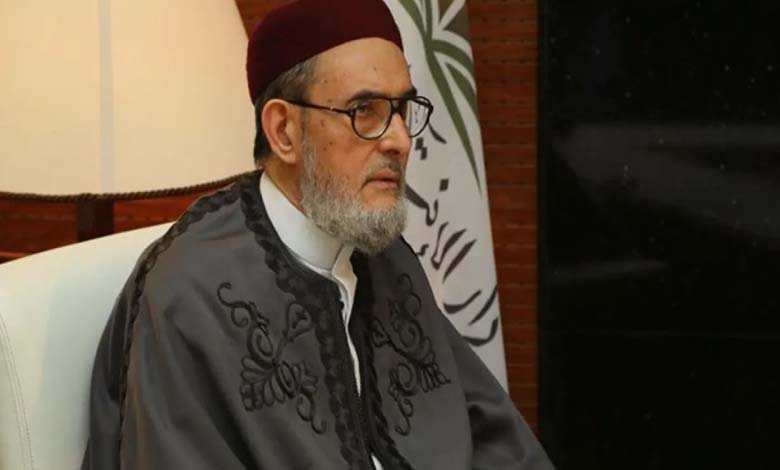
The deposed Libyan Mufti claims that the international community controls the country through the UN mission due to the failure of armed groups to fulfill their duty.
The former Libyan Mufti, Sadiq Al-Gharyani, has once again attacked the United Nations mission in the country, calling for armed resistance against it during his appearance on the Islam and Life program aired on the Muslim Brotherhood-affiliated Al-Tanasuh channel.
According to the local news website Al-Saa 24, Al-Gharyani stated that “the international community controls Libya through the UN mission because those who carry weapons have failed to fulfill their duty,” emphasizing that “anyone who cares about the country should not heed the mission’s calls.”
-
Al-Gharyani Incites Armed Resistance against the UN Mission in Libya
-
One of the Leading Faces of Political Islam in Libya… What Is Al-Gharyani Seeking?
He described the UN mission’s advisory committee as “the latest project of chaos,” adding that its members were “the dregs of society and the unwanted,” and arguing that “UN projects do not bring good but rather aim to destabilize the country.” He also criticized what he called the “tutelage” exercised by the mission through the formation of a committee to select the government. He questioned, “Will this committee replace the internationally recognized Government of National Unity?”
The ultra-conservative Islamist movement, known as the Al-Gharyani faction, supports the outgoing head of the Government of National Unity, Abdulhamid Dbeibah. On multiple occasions, it has called for Dbeibah to remain in power, while the former Mufti’s fatwas have become a weapon in the political conflict between rival factions.
-
The “Terror Godfather” in Libya: al-Gharyani’s Fatwas Target Russia
-
“The Mufti of the Muslim Brotherhood”: Al-Ghariani leads an incitement campaign to prevent the end of the Dbeibeh government
Local and UN efforts to resolve the Libyan crisis face obstacles from Al-Gharyani’s followers, who have openly rejected any reconciliation initiatives in the country. In multiple incendiary fatwas, he has called for armed confrontation against the people of eastern Libya and the armed forces, considering it a priority.
As the Libyan branch of the Muslim Brotherhood continues to incite violence and chaos, there is no sign of an imminent resolution to the Libyan crisis, which has persisted for years amid ongoing political divisions and a lack of a consensual path toward national elections.
-
Libya Caught in the Crossfire of Great Power Rivalries… What Are the Possible Scenarios?
-
Sadiq Al-Ghariani fatwas for serving terrorism.. Details
The Imam of Ibn Nafi Mosque in Tripoli, Abdelrazak Mchireb, stated in a Facebook post that “analysis is a waste of time,” adding that “Libya’s political situation needs no explanation or analysis; it is clearer than the sun at noon.”
In another post, Mchireb asserted that “victory comes only through both arms and politics,” continuing, “A message to those who have been deceived in Libya, abandoned their armed comrades, and embraced the enemy: they have become nothing more than clowns.”
-
UN mission: Libyan political dialogue will restart next month in Tunisia
-
Ghanaian Hanna Tetteh Appointed UN Envoy to Libya after Months of Vacancy
The latest initiative to form an advisory committee, proposed by Stephanie Khoury, acting head of the UN mission in Libya, as an attempt to push the political process forward and pave the way for elections on a consensus-based foundation, faces numerous challenges that hinder efforts to resolve disputes among Libyan factions.
The selection of this committee’s members has sparked widespread controversy. Observers argue that it could open a new front of conflicts, highlighting the many obstacles the committee might encounter, especially given the existing disagreements between the House of Representatives and the High Council of State.
-
Libya’s Muslim Brotherhood Faces Another Setback… Political Analyst Diagnoses the Movement’s Internal and External Crises
-
A Scheme That Made Them Outcasts: The Waning Influence of the Muslim Brotherhood in Libyan Municipal Elections
Libyan perspectives on the role of the UN mission in the country are divided. Some believe that its role has been limited to managing the crisis rather than resolving it, while others accuse it of serving foreign agendas that do not align with Libyan interests.


